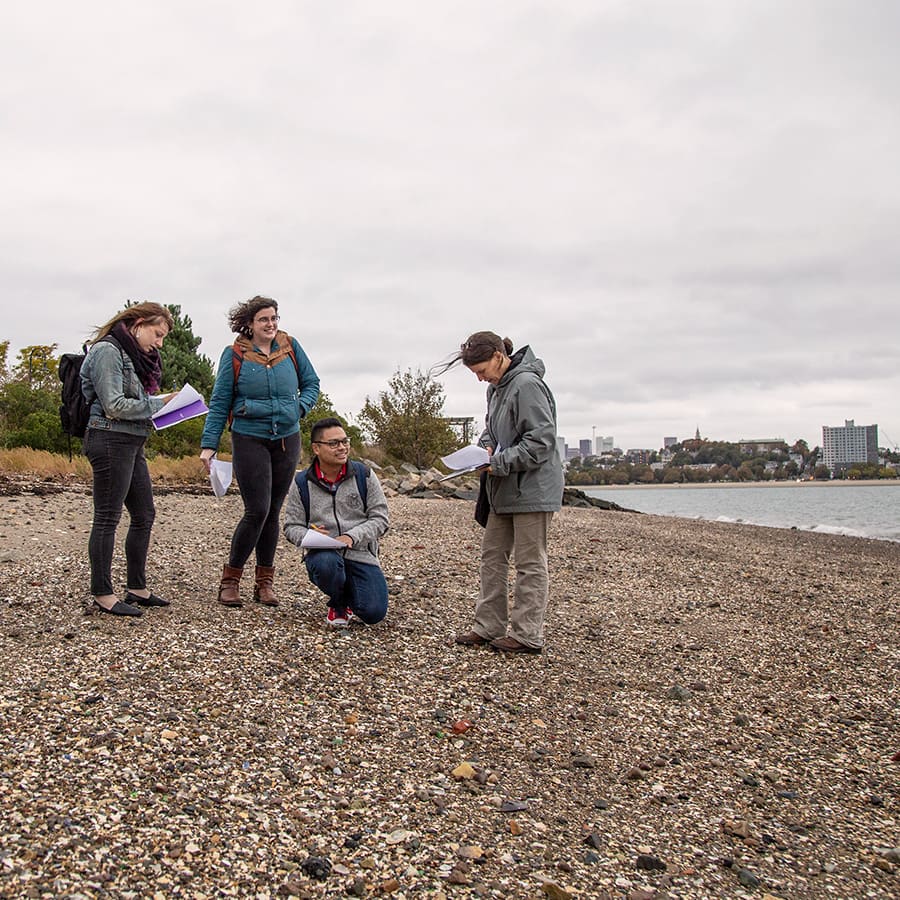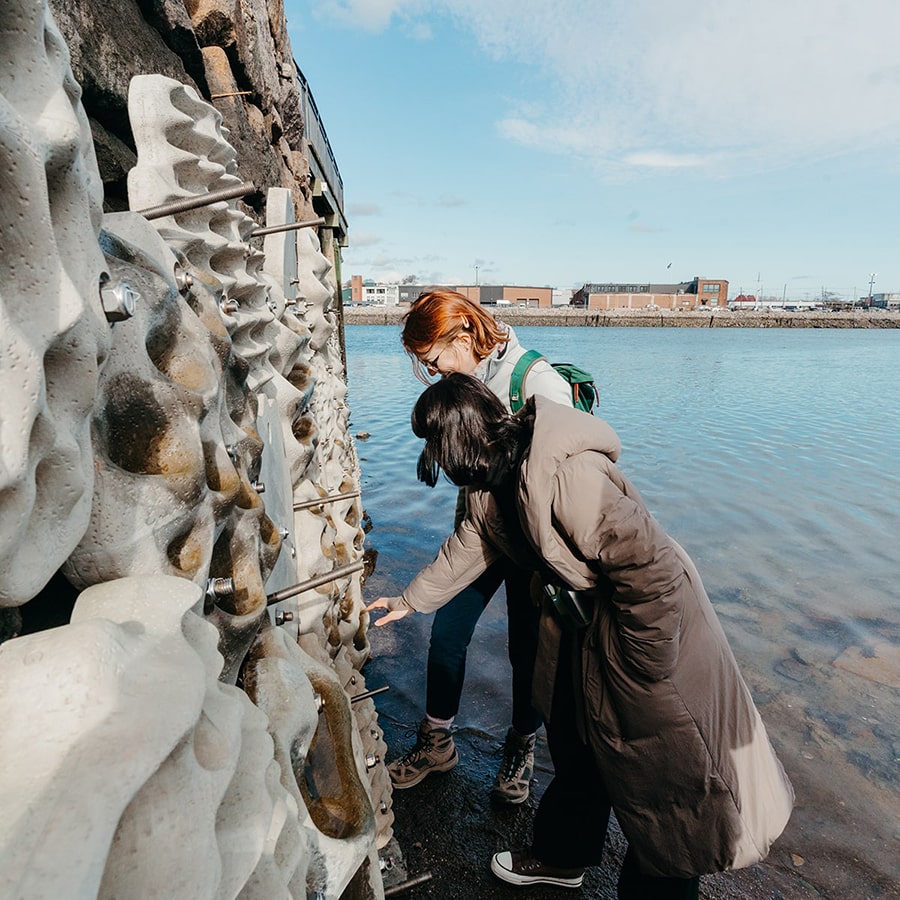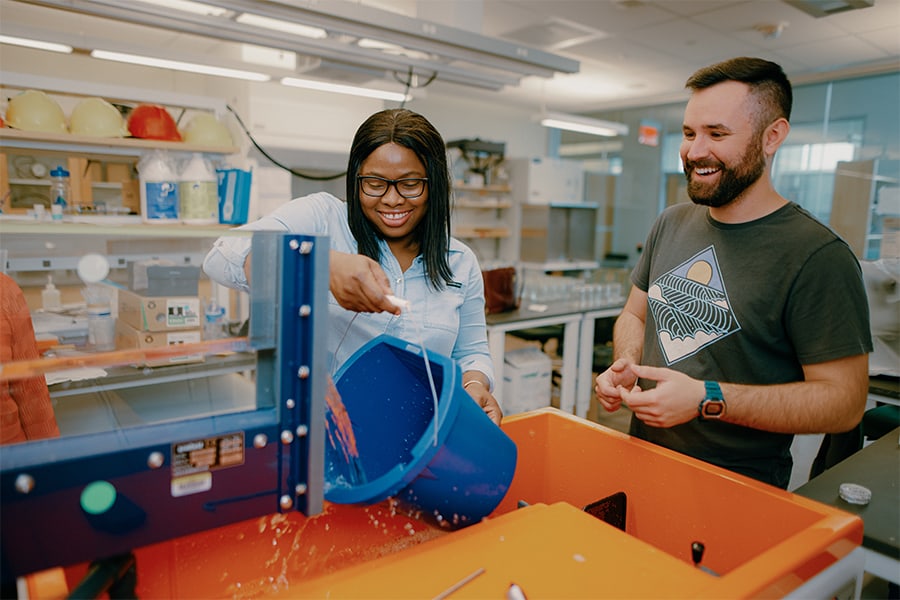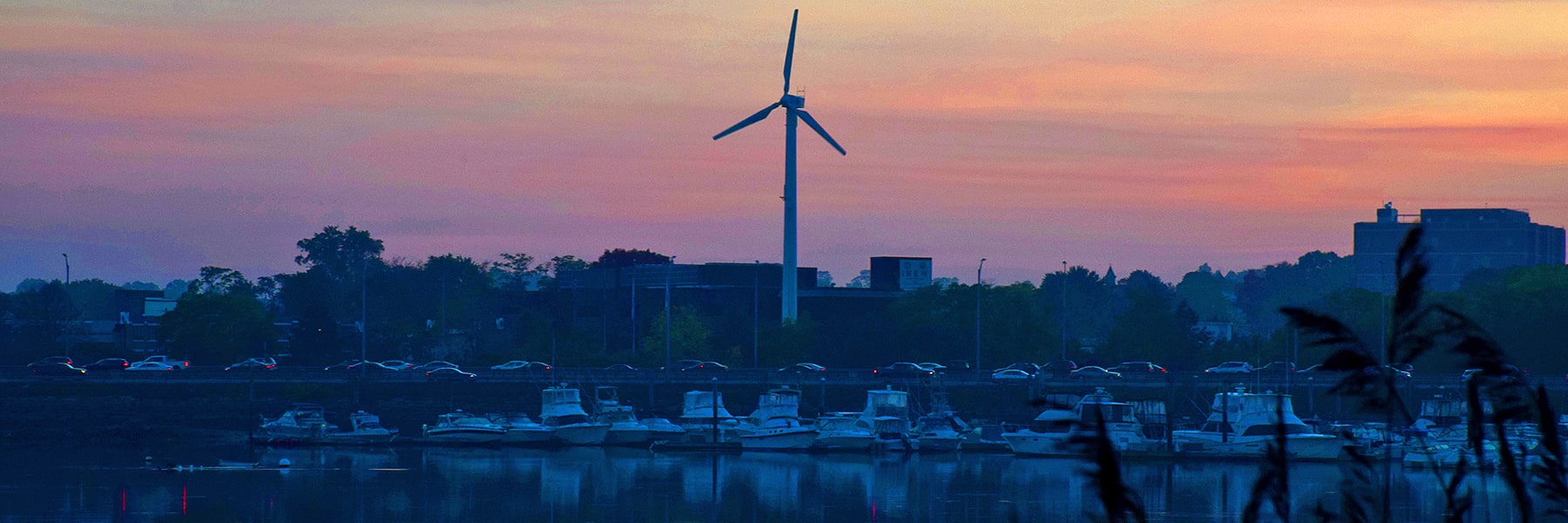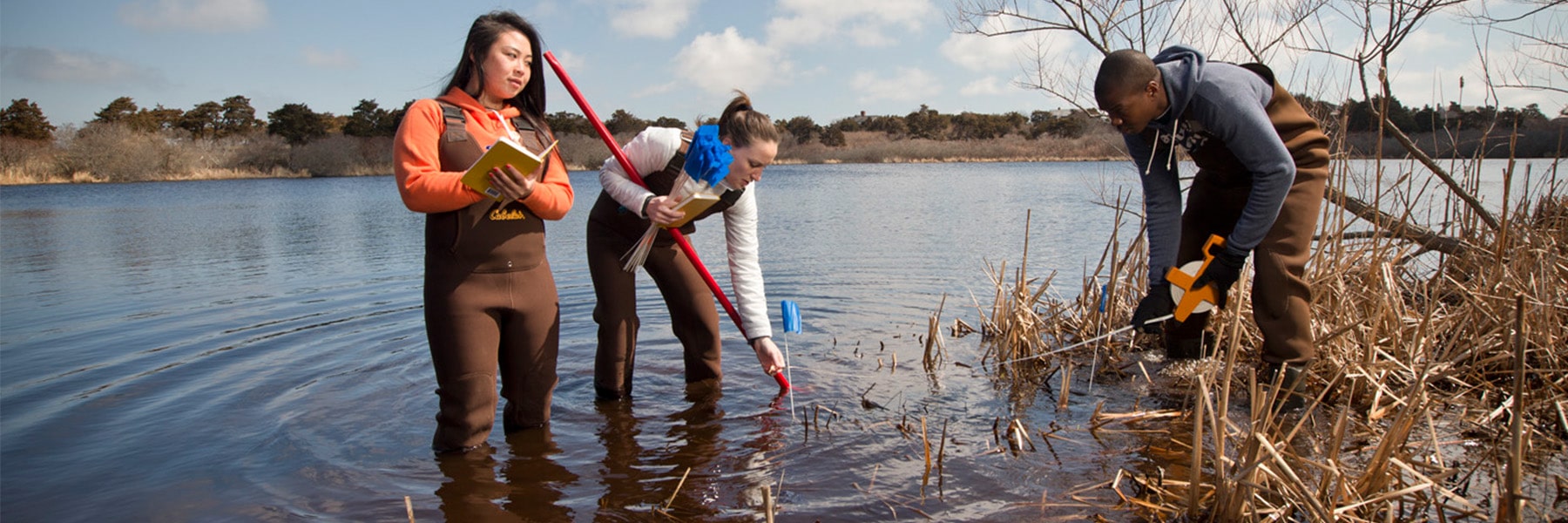Environmental Sciences BS
Lead the planet to a cleaner, greener tomorrow.

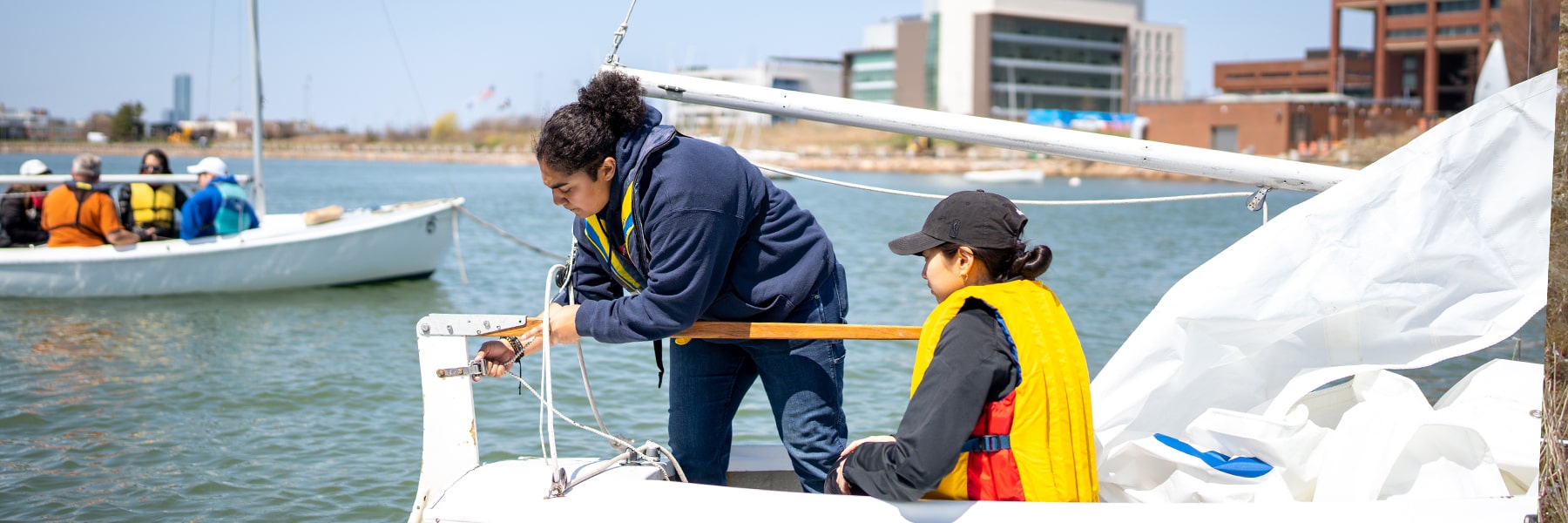
Career Possibilities
Create meaningful environmental change with immersive research, practical internships, and skills that grow your potential for a career with real-world impact.
Here’s where this degree can take you:
- Environmental Specialist
- Environmental Technician
- Marine Biologist
- Environmental Science Educator
- Wildlife Biologist
- Environmental Consultant
- Water Quality Scientist
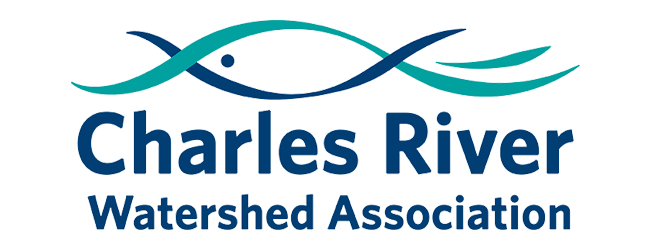
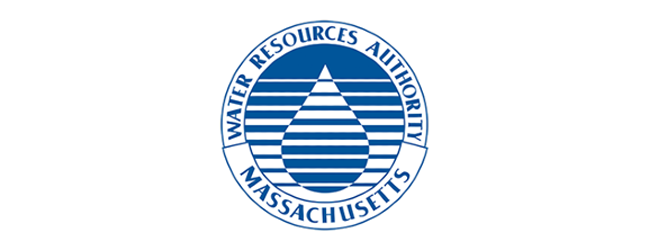
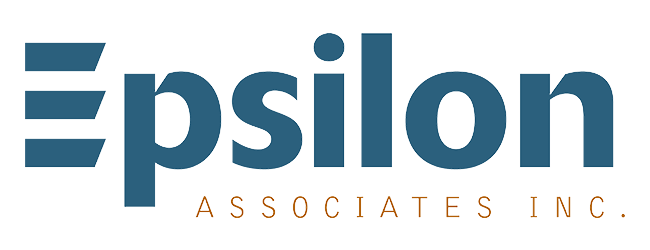

Student Stories
Plan Your Education
How to Apply
First Year Student Deadlines: Fall
- Early Action I: November 1
- Early Action II: January 1
- Regular Decision: February 15
Transfer Student Deadlines:
- Fall Semester (Domestic): June 15
- Spring Semester: December 15
Please review the first-year and transfer apply pages for important information about application requirements, deadlines, and application status check.
Financing Your Education
Become a Beacon and pursue your passion in UMass Boston’s diverse, supportive environment. Many students across our 200+ undergraduate and graduate programs receive financial aid—providing access to an education that’s exceptional and affordable. For additional information regarding tuition and fees, please visit the Bursar’s Office or send an email to Bursar@umb.edu.

